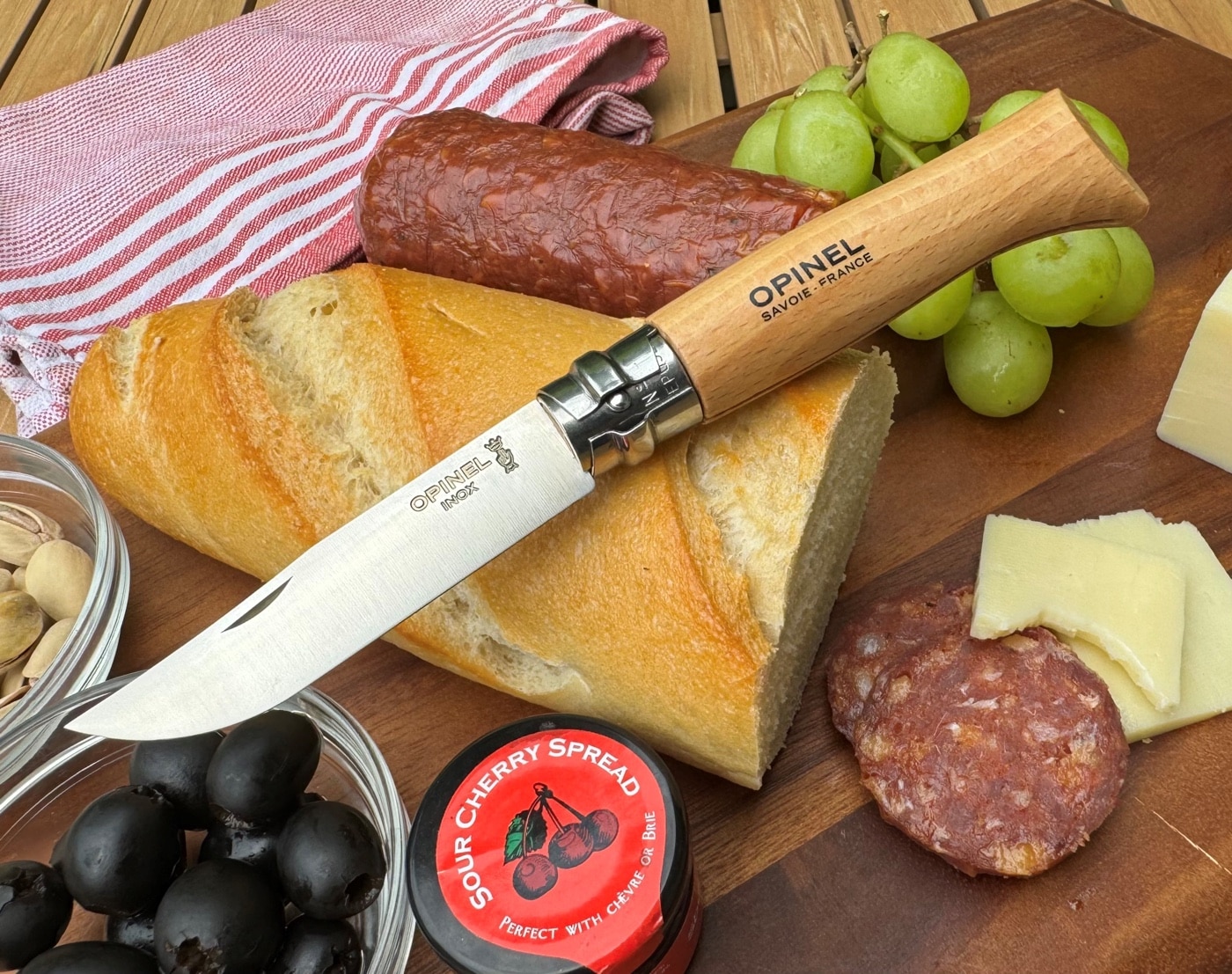The iconic Opinel No. 8 knife, crafted by Joseph Opinel in Savoie, France, has transcended decades as a classic folding knife, cherished for its blend of tradition and utility. Introduced in 1890, the knife features a simplistic design with elements like a clip point Yatagan-style blade and a natural wood handle, marking its place in global cutlery history. The author, Randall Chaney, recounts discovering this classic French knife at the Museum of Modern Art in 2006, highlighting its distinct appeal and longstanding craftsmanship tradition.

The Opinel No. 8 is renowned for its durable high-carbon or stainless steel blade, making it practical for a range of tasks from kitchen use to outdoor activities. The knife's simplistic construction includes only five main components, reflecting a commitment to quality and efficiency. A unique locking mechanism, the Virobloc, was integrated in 1955 to enhance safety, allowing the blade to be securely locked in both open and closed positions. This enduring design contributes to the Opinel's status as a timeless tool, demonstrating the brand's effective use of modern technologies of its era to maintain standards of functionality and aesthetic.
The versatility and reliability of the Opinel No. 8 make it a sought-after tool for a multitude of consumers, from outdoor enthusiasts to culinary professionals. Its historical significance is underscored by its continued production and use across generations, as well as its affordability. With a lifespan that extends over several decades, the Opinel No. 8 remains a staple in knife collections, offering an accessible piece of cutlery history. For more in-depth insights and details, visit the original article Opinel No. 8 Review — Classic Folding Knife with Purpose.
No comments:
Post a Comment